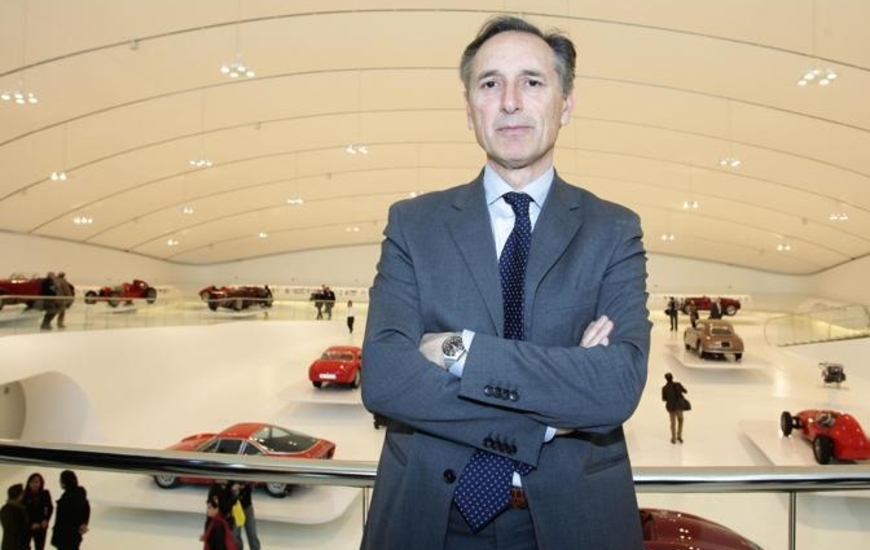by NICOLA CATENARO
Portale Compositi continues the series of interviews on the future of composites in search of an interpretative key that anticipates the times and allows us to see beyond the traditional schemes we are used to. It is the turn of the journalist Mauro Tedeschini, former director of Quattroruote magazine and today head of the Vaielettrico.it portal. Our conversation, as you can imagine, started with cars.
The future of composites is closely linked to the future of cars. How do you imagine the car of the future, the one we will be driving in twenty years' time?
«I can only imagine it electric, even if making bets twenty years from now is very complicated. Let's talk about 2043, a time when the new generation of solid-state batteries (and who can imagine what other technologies) will be in full maturity. But there will be a major effort to completely rethink cars, with lighter materials and more sustainable weights, after the hangover of the last two decades related to crash regulations and the SUV hangover. When it comes to cars of the future, however, I would not dwell only on the vehicle itself: there will be a revolution linked to use, to the fact that fewer and fewer people will buy the car and more and more, thanks to digital technology, will rent it only for the use they will make of it, together with other means: scooters, bicycles, kick scooters...».
Electric car could benefit from composites whose lightness would compensate for the still considerable weight of the batteries. Sounds easy, but it doesn't happen. Why, in your opinion?
«For a question of costs and also a certain laziness on the part of the builders. For the moment we are working above all on the famous Cx, on aerodynamic efficiency, but manufacturers such as Volkswagen and above all Renault announce that the time has come to work on materials».
Currently, despite announcements, proclamations and forecasts, the electric car is not taking off. From your point of view, what do you see on the horizon and what does the data say?
«The electric car is not taking off in Italy, where there is an atavistic resistance to change and where politics and the media have conducted a frantic campaign against the electric alternative. But in the large European countries such as Germany, France and the United Kingdom we have exceeded 10% of the market share (in Germany it is close to 20%), with constant growth. Here we are at 2.9%. Of course, the prices are heavy, but in reality there are also affordable electric models and in any case ours remains one of the countries where the most German premium cars are sold, so the reasons are more complex».
Today the electric car, tomorrow the hydrogen car. Correct?
«I don't think so, hydrogen has advantages, including much faster refueling, but it has the major limitation that building a refueling station involves costs that are currently unthinkable, while any plug in the garage is enough to refuel an electric car. If we look at the efficiency of hydrogen and pure electric propulsion, we see that the latter is clearly better. The widespread belief is that hydrogen will establish itself (in part) on heavy vehicles, trains, ships, that is, vehicles that always travel the same route and for which it makes sense to build refueling stations in the places they usually touch».
The passion for engines does not seem to belong to the current generation of young people. What is the reason for this disaffection?
«The winning technology is no longer the one of the engine, but the one of digital technology, the car is considered an object of the last century and carries with it a legacy made up of pollution problems and road deaths. This affects the new generations, while it was once considered the equivalent of the famous "seven-league boot" (the magical boots of the homonymous tale, capable of making the owner travel seven leagues with a single step, ed.)».
Successful and iconic supercar brands are often born in Italy. Today, not much remains of this Italian story (apart from Ferrari and a few other examples). Why?
«I don't agree, this story remains and indeed grows from year to year. Just look at the financial statements of Ferrari, Maserati and Lamborghini to see growing financial numbers and new hires. The problem is that we are missing the mass automotive train and that due to the attitude I mentioned above, with such poor market numbers, investments in new plants linked to the electric go everywhere in Europe except for us".
WHO IS
Mauro Tedeschini, born in Modena in 1955 and with a degree in law, is a journalist who has directed several newspapers and periodicals, including La Nazione, Italia Oggi, IL Quotidiano Nazionale QN, Il Centro and Quattroruote. He also worked for Corriere della Sera and for Resto del Carlino, of which he was deputy director. For 10 years he was president of the Enzo Ferrari Museum in Modena (in the photo). Always passionate about issues related to sustainability, in 2017 he founded the Vaielettrico.it portal, which is today the leader in Italy in the sector, with over one million unique users.
-

-
21 February 2023






















